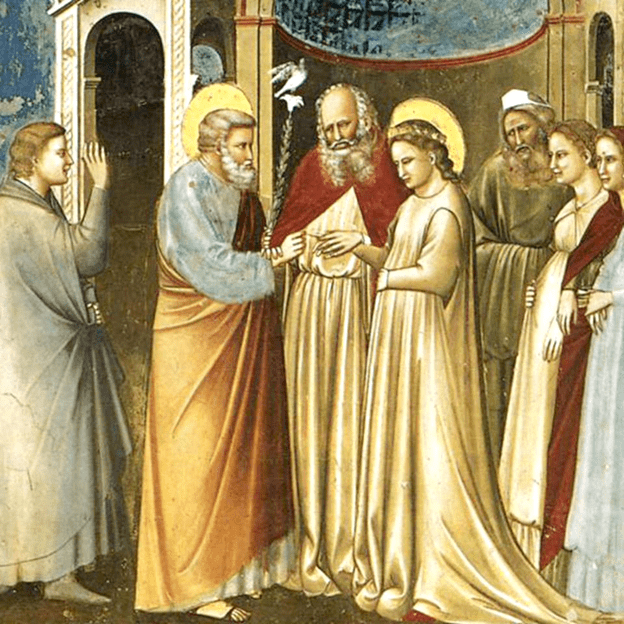Introduction
Divorce is one of the greatest evils of our time, affecting the Catholic population only slightly less than other segments of society.
These divorced Catholics are in an extremely vulnerable and dangerous position. Not only have they lost the partner with whom they set their hopes to share the daily burdens and pleasures of life, but at the same time their resolve to continue to lead a Christian life is being treacherously undermined by spurious pronouncements from the many false shepherds of today’s Church, denying the objective evil of adulterous “second marriages.”
If we truly believe in Christ, and truly want to love and serve Him in this life, we must accept His plain teaching that “re-marriage” after a divorce is not marriage at all, but adultery.
What divorced Catholics need now more than ever is a clear statement of what is right or wrong for them — that is, what the law of God requires of them — so they can live accordingly and avoid any part in the horrible sacrileges and scandals which are becoming commonplace in many Catholic parishes.
May this writing provide such a guide, and may it also serve to enable other Catholics to properly counsel, and practice real charity toward, their divorced relatives and friends … which cannot be done apart from the truth.
“For Better, For Worse”
What is marriage?
Marriage is a divine institution, established by God Himself from the very beginning of human history, and later elevated by Our Lord to be a Sacrament of the Church. Each particular sacramental marriage is the indissoluble union of a man and woman “in one flesh,” as a common principle for the generation and rearing of children: “Wherefore a man shall leave father and mother, and shall cleave to his wife: and they shall be two in one flesh.” (Gen. 2:24)
For how long do marriage vows bind the spouses?
Having become “one flesh,” the man and woman remain united as husband and wife until that flesh is dissolved by God through the death of either of the spouses.
If a man and woman have the power to marry each other, don’t they also have the power to end their marriage?
It is true that a man and woman marry by exchanging vows, but it is God Himself Who joins them in marriage. In other words, their marriage arises as a result of entering into a mutual contract, but their relationship as man and wife is created directly by God, not by their contract: “God hath joined [them] together.” (Mk. 10:9) This is why spouses are bound above all by the divine laws governing marriage, and not just by their mutual promises.
Does the Church ever allow spouses to separate?
Sharing bed and board is a mutual duty of married persons. Each spouse is entitled to receive these privileges of conjugal life from the other, and each likewise has a solemn obligation to render them to the other. Only for a very serious reason (such as adultery or endangerment) and with the explicit permission of the local bishop may spouses cease living together.
Doesn’t the possibility of such a permission to separate imply that marriages can be ended by divorce?
Separation and divorce are two very different things in terms of both morality and law. When a married couple separates, they remain husband and wife. Their relationship has not changed in any way, even though they no longer live together. Thus neither spouse is free to contract a new marriage as long as the other remains alive.
Annulments: A “Catholic Divorce Court”?
How then can the Church presume to annul marriages (at least in many cases), allowing those parties to remarry? Is this not the equivalent of a divorce proceeding?
The term “annulment” is actually a misnomer. The Church does not and cannot nullify a validly contracted sacramental marriage. Rather, if — through a rigorous canonical process — it is found that some invalidating impediment existed at the time of the parties’ entering into the marriage contract, the Church declares that no marriage bond ever existed between those persons. This proceeding would be better called the issuing of a decree of nullity, or a finding of invalidity, than the granting of an annulment.
So what exactly is an annulment?
A decree of nullity, commonly called an annulment, is a finding by a diocesan marriage tribunal (i.e., a Church court of law) that a couple’s contract for marriage was not validly made, and therefore that the supposed marital relationship never actually came into existence. Since the marriage relationship arises from the man and woman’s contract, it is clear that if there was no valid contract between them, then neither was there any resulting relationship.
What are some examples of circumstances which could invalidate a marriage contract?
Examples of impediments which render a marriage contract null and void from the beginning include: defect of form (i.e., attempting to marry outside of the Church, if either or both parties are baptized Catholics); a prior still-existing marriage; impotency (as a permanent condition present at the time of the wedding); a fixed intention incompatible with marriage (e.g., to practice polygamy, or never to have children); and coercion.
Why does the Church refuse to grant an annulment to some couples?
If a baptized man and woman have validly entered into a marriage, their relationship cannot be nullified by any power on earth. Only when an investigation shows that the marriage contract was not properly entered into, such that no valid contract was ever made, can the Church recognize a possible ground for nullity.





